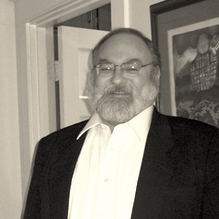“Kindness is the overflowing of one’s self into the lives of others” (anonymous)
Chesed: mercy, compassion, kindness, grace, steadfastness, faithfulness.
Chesed encompasses all these components, and more. It denotes a love stemming from loyalty and commitment. In the Old Testament, chesed appears 245 times, mainly to describe God’s love for humankind We need not do anything to earn or merit chesed; it is an abundant freely given everlasting gracious love.
Chesed embodies going beyond what would ordinarily be expected. Chesed is characterised by personal involvement and service. Chesed is only limited by the size and strength of our heart and the generosity of our spirits.
The kabbalists associate Chesed with the soul’s desire to embrace all of Creation and bestow upon it goodness. An expansive force, it impels the soul to connect, it inspires.
Our Rabbis taught that while Chesed is more important than tzedakah (charity). Tzedakah is done only with money, and only for the poor, and only for the living. Chesed may be done with one’s money or with one’s person.Chesed may be given both to the poor and to the rich, and Chesed may be shown to both the living and the dead. Our tradition teaches us to handle the deceased from the moment of death through burial in a manner which reflects honor and the preservation of one’s dignity – even at the end of life. Chesed manifests God's absolute, unlimited benevolence and kindness. And Chesed is used to describe the work of the Chevrah kadisha. Caring for the dead is called chesed shel emes, an act of true loving kindness.
In his paper, HaBrit V'HaHesed: Foundations of the Jewish System, Daniel J. Elazar outlines the link between Chesed and covenant.
“The world lives because of God’s covenant to humankind. (C)Hesed is central to God’s character and is closely tied to His covenant with His Chosen people; in fact the covenant may be
thought of as the relationship from which the (c)hesed flows. “
What are the implications for the Chevrah Kadisha? Is there a covenant in the Taharah room? We never know what we may encounter when we begin a Taharah. Our bottom line, our covenant, is that we will do whatever is necessary to ensure that every meit/ah is prepared lovingly and accompanied to burial in the most dignified and respectful way possible. Our covenant is that we will stretch ourselves, we will go beyond what may normally be expected, with mercy, grace, kindness, and compassion.
We offer a gracious act of love with steadfast commitment to tradition and community.
Rena Boroditsky is the Executive Director of Chesed Shel Emes, the non-profit Jewish funeral chapel and Chevrah Kadisha in Winnipeg, Canada. For fifteen years, she has been a student and teacher of end-of-life Jewish rituals. Rena has led sessions at Kavod v'Nichum conferences and at Limmud events in the US & Canada. She recently launched Death Cafe Wnnipeg. She has served in past as a board member of Kavod v'Nichum, and was elected to another term as an officer at the most recent Kavod v’Nichum conference. She has been a lecturer and student in the Gamliel Institute. Rena is a member of the first graduating class of the Gamliel Institute, having completed the required studies and projects, and she has returned recently from the inaugural Israel Study Mission which is the heart of the sixth course in the Gamliel Institute curriculum, International Perspectives.

UPCOMING GAMLIEL INSTITUTE COURSES
Starting in October:
Chevrah Kadisha: History, Origins, & Evolution (HOE). Tuesdays, 12 online sessions (orientation session Monday October 12th, classes Tuesdays from October 13th to December 29th, 8-9:30 pm EST/5-6:30 pm PST. An examination of the modern Chevrah Kadisha from 1626 in Prague, through history and geography, as imported to Europe and the rest of the world, and brought to the US; with a specific contemporary focus on North America, and how the Chevrah has developed and changed over time up to the present. Studies include text study, and emphasize history, sociology, politics, government, and many other factors.
Winter 2016:
During the coming Winter semester, the Gamliel Insitute will be offering two courses. Chevrah Kadisha: Taharah & Shmirah (T&S), and Chevrah Kadisha: Ritual, Practices, & Liturgy [Other than Taharah] (RPL). These courses will begin in January, and will each run for 12 sessions. More information to come, or visit the Gamliel Institute section of the Kavod v’Nichum website.
NEW CLASS TIMES OPTION:
We are considering offering courses mid-day (East Coast time) as a convenience to those who have scheduling issues with the evening times now in use (including those overseas in Israel and other places). This is anticipated to be the same online format and material as the courses that have been offered in past, but at a time that works better for some than the evening (Eastern Standard). If you are interested in this option, please be in touch to let us know: we need to assess the level of interest as we determine whether to offer this option. info@jewish-funerals.org.
Contact us for more information about scholarships, or any other questions. info@jewish-funerals.org or call 410-733-3700.
You can “>jewish-funerals.org/gamreg.
Donations are always needed and most welcome – online at
RECEIVE NOTICES WHEN THIS BLOG IS UPDATED!
Sign up on our Facebook Group page: just search for and LIKE Chevra Kadisha sponsored by Kavod vNichum, or follow our Twitter feed @chevra_kadisha
To find a list of other blogs and resources we think you, our reader, may find to be of interest, click on “About” on the right side of the page.There is a link at the end of that section to read more about us.























 More news and opinions than at a Shabbat dinner, right in your inbox.
More news and opinions than at a Shabbat dinner, right in your inbox.